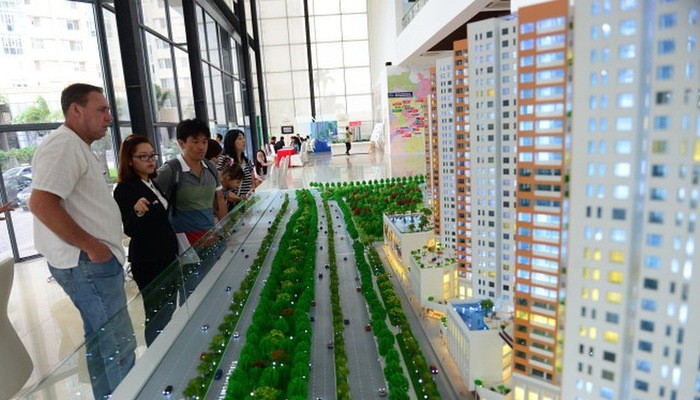Resolution 82 refers to the issue of improving the effectiveness and efficiency in policies and laws implementation on land planning, management and usage. It was issued after NA announced the audit result on the implementation of policies and laws related to land in cities since 2013 Law on Land till the end of 2018, along with opinions of NA deputies.
There has been no data on the actual number of foreigners buying properties in Vietnam as well as the number of Vietnamese that hired by foreigners to represent them in illegal real estate transactions so far. This has raised an argument at the NA hall.
At a NA session which took place in last November, Da Nang constituent mentioned in their petition about the issue in which foreigners buying properties along the coastal line of Vietnam by hiring Vietnamese to represent them.

The Resolution aims to prevent and ban illegal representation for foreigners in land and housing transactions as well as strengthen the management mechanisms. It pointed out that the action of Vietnamese in represent of foreigner signing illegal transactions is a great threat for the society and a law violation.
Thus, the current Criminal Code of Vietnam need amendment in which adding “illegal representation for foreigner in real estate transactions” to the list of criminal charges, with the aggravating circumstance being real estate in areas which are sensitive to national security and defense.
In addition to requiring the Government to take actions, Resolution 82 also proposed to review and evaluate the implementation, hence, make amends for the 2013 Law on Land and regulations related to land planning, management and usage.
It has clarified specific regulations on land use regime for multi-purpose construction works with accommodation functions such as hotel apartments (condotel), office apartments (officetel), commercial townhouses (shophouse), etc.
Moreover, the resolution provides a strict legal frame for leasing/allocating land to develop socio-economic development projects, which require auctions of land use rights. Information related to bidding for projects land or clarify cases of non-auction of land use rights is also clearly stated.
This is also considered an innovation in land and land prices regulations, promoting efficient and sustainable development. It proposes a new mechanism to strictly control and overcome land speculation through tax policies, in which those own unused land are subject of higher taxation.
It requires local authorities to strictly implement, monitoring, and publicizing infringing projects on their local websites; resolutely recover land according to the provisions of law for projects that are not in use, delayed, terminated, used for improper purposes or violating land laws, urban planning, construction and environmental protection policies.
Such a series of requests must be made, as the NA believes that inadequacies in land management are mainly subjective. Meanwhile, essential factors such as vision, forecast and impact evaluation of policies are limited.
In fact, the current law enforcement is still inadequate, leading to a decrease in effectiveness and efficiency of the state management on land and urban areas. Moreover, the process of issuing and approving urban planning management tools are still slow.
Another cause of the problem root from cadres and civil servants who manage land and urban planning yet with weak ethical qualities.
This has led to the situation of loose management, lack of drastic measures in applying remedial measures, reducing the lawfulness.
Assessment of spiritual real estate projects
In Resolution 82, NA also requested the Government to review the planning for tourism project land that consists of religious and spiritual elements on the principle of law compliance. These projects must ensure the optimal use of land resource along with the socio-economic efficiency of the locality.
The loose legal framework related to spiritual real estate projects has led to serious problems in recent time. According to Mr Pham Van Hoa – Dong Thap constituent, resort projects operated under the name of “spiritual tourism” with thousands of hectares of approved planning has been a problem for the authorities.
The blurred barrier between commercial services and spirituality causes difficulties in monitoring and managing this type of property project.


















